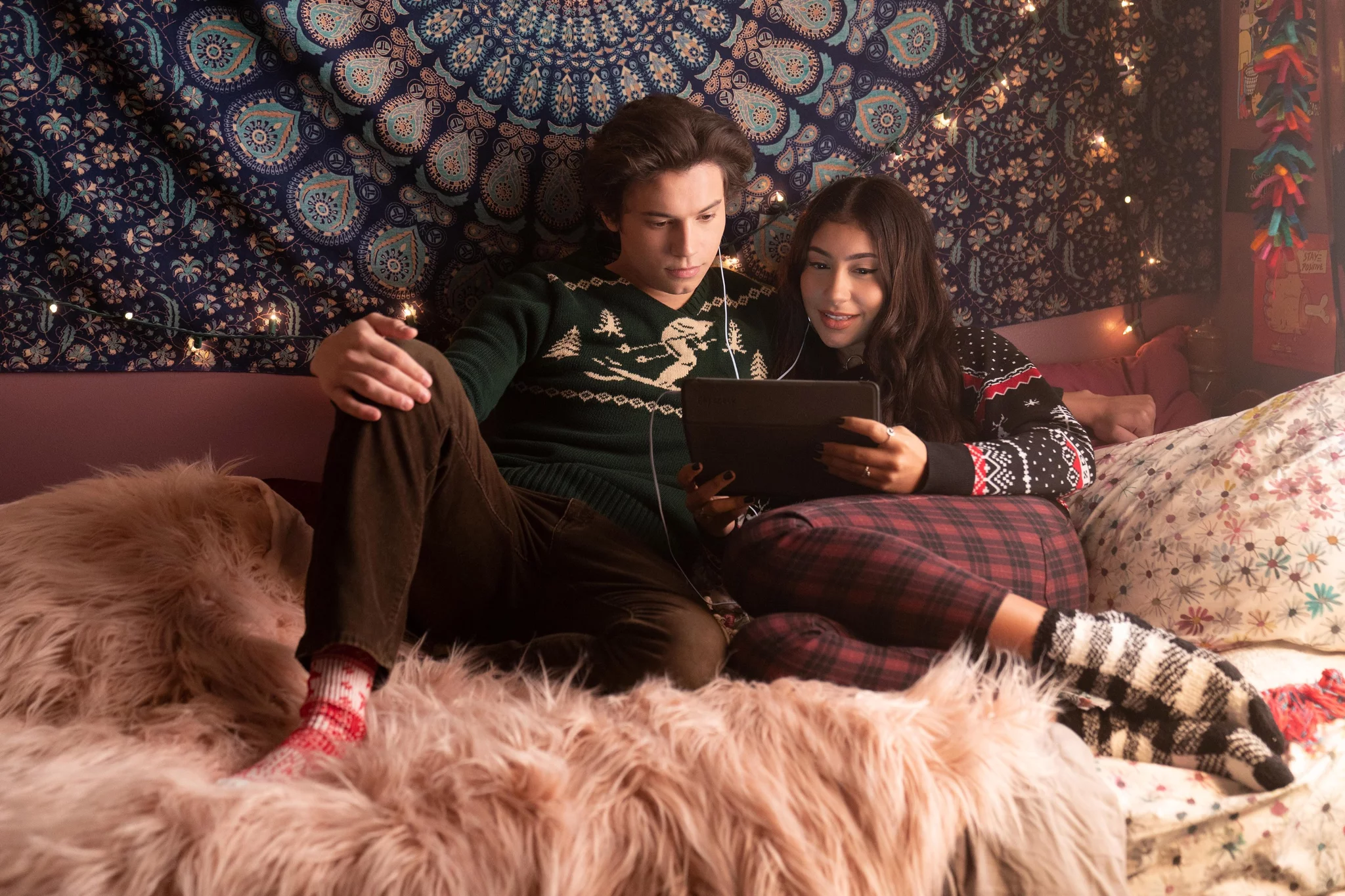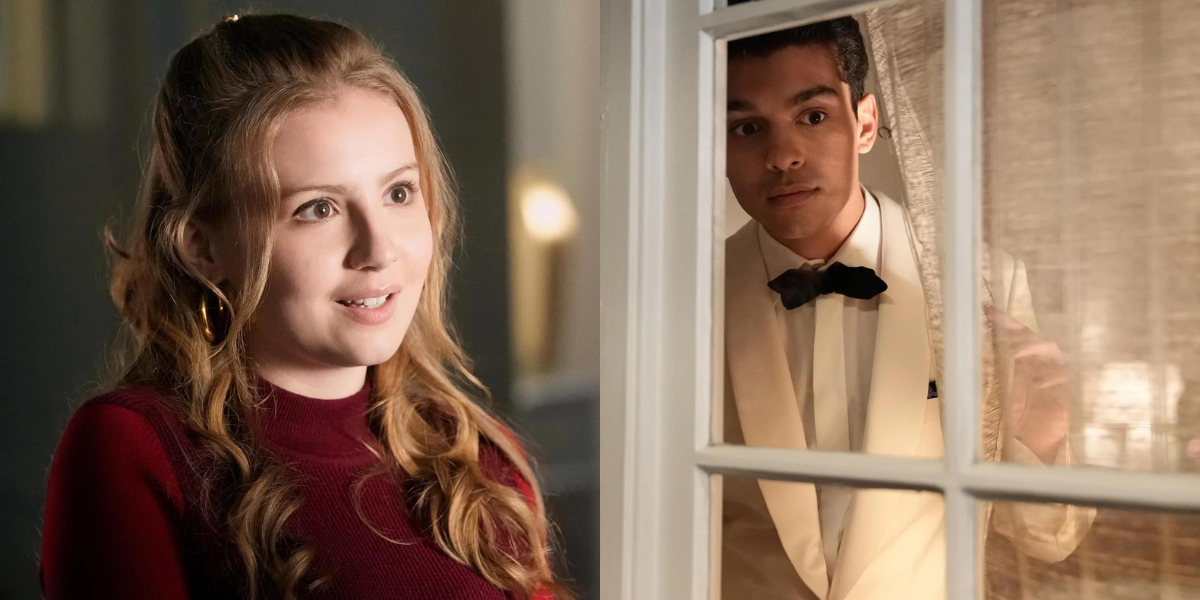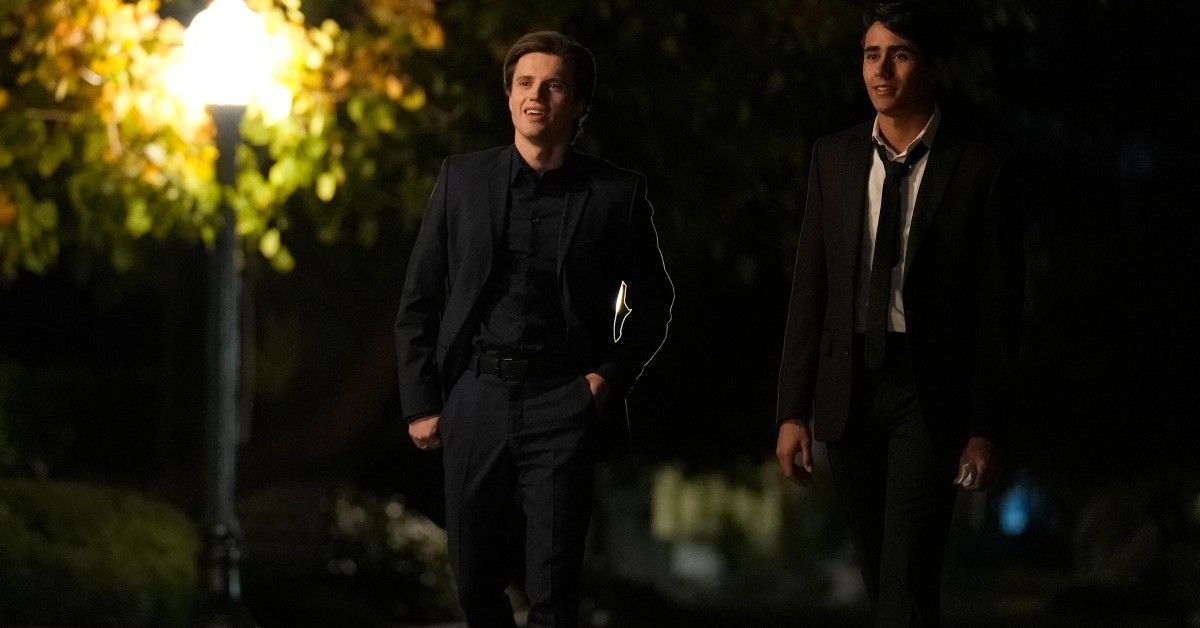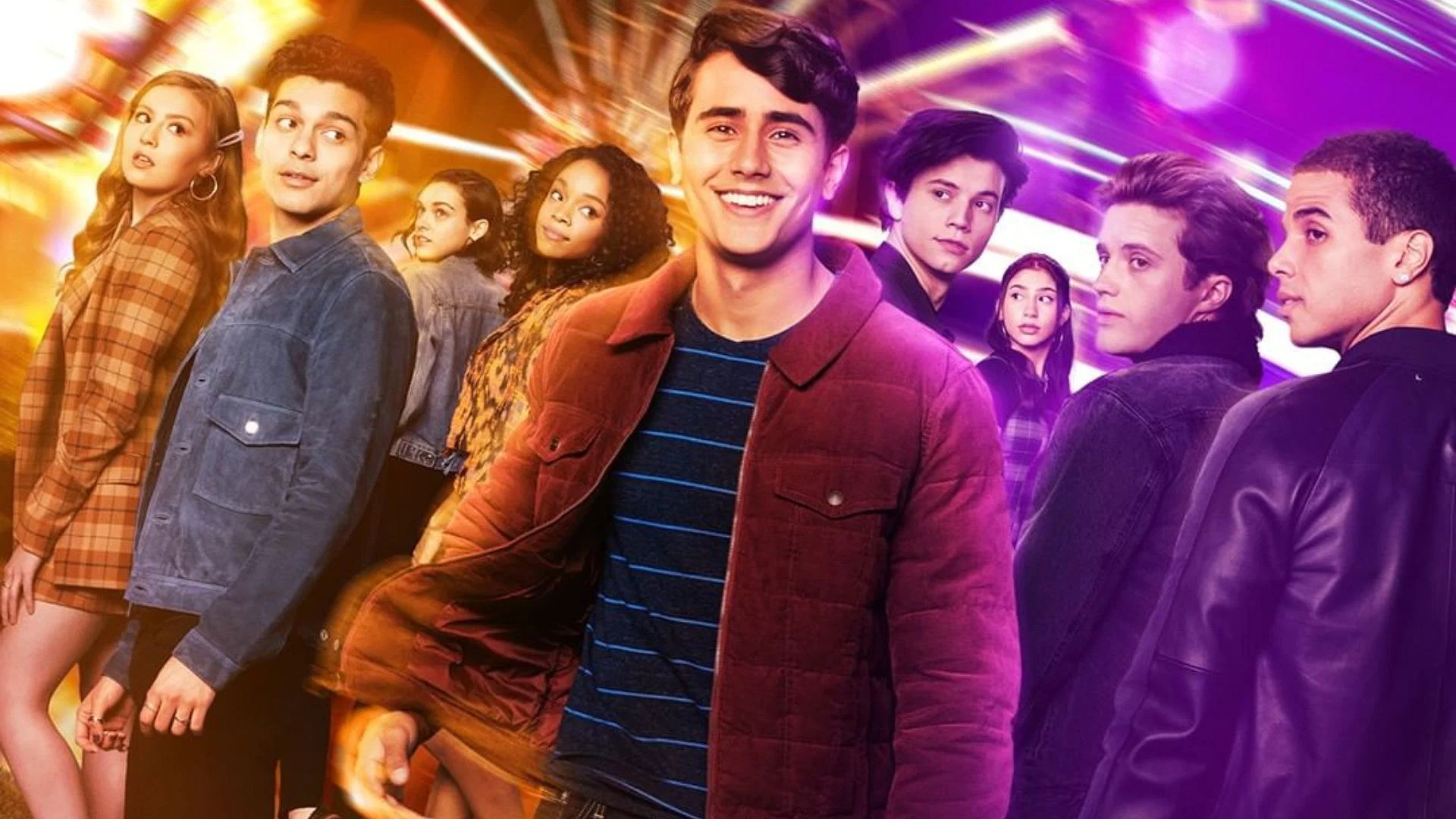This Pride month, Love, Victor comes to a close with its third season wrapped in Disneyesque rainbow happiness similar to its predecessor, Love Simon. No matter how messy things get on Love, Victor, you can always trust that everyone will get a happy ending. That’s how it works on Disney+, which the show has now been deemed innocent enough for inclusion. Why it was ever deemed inappropriate enough to earn a ban from Disney+ to begin with is an easy enough guess.
Spoilers ahead for Love, Victor season 3!
This season is fast-paced and covers a lot of storylines! Unfortunately, it buckles under its own weight, much like other shows that become stretched too thin as their seasons lumber on. Yet, the show still manages to give a nice, optimistic conclusion to all of our characters. Along the way, it does touch on more serious topics like STI scares and hookup culture. But the show doesn’t delve enough into these topics to give them real weight. Instead, it skims over them, which is a disappointment given this show is supposed to be about queerness. Love, Victor was about Victor navigating his queer experience. This season strays the most from its titular character, focusing on the many straight characters in his supporting cast while lacking in development for its queer ones.

Pilar and Felix get a wonderful arc that reverts them from lovers to friends. After Pilar’s father brings out the Latino machismo and forbids Pilar and Felix from dating, the pair realize Felix loves Pilar’s family more than her. The Salazars are the stable surrogate family Felix relies on when his own home life is too unstable. He can’t be a good boyfriend to Pilar because he could never be her person first and foremost. Side note: Felix and Pilar have some of the funniest dialogue this season, along with Rahim.
Mia’s arc involves looking for a stable home since she hasn’t had one for so long. She eventually finds it with her own father, who has settled with a kind wife and new son. Mia’s move to be with her father and step-family makes sense for her character, too. Her happy ending felt rewarding given what she’s been through the past few seasons.

The queer supporting cast are also given interesting storylines, but the show doesn’t dedicate enough time to them. Fan-favorite Rahim gets a great arc about refusing to hide his gayness. After he goes back in the closet for his visiting uncle, Rahim makes his mother promise she’ll never make him hide again. But the show never truly acknowledges what the consequences of this will be for Rahim’s family. Later, he nearly becomes a victim of a hate crime because he presents himself in a non-heteronormative way. His speech to his bullies had me cheering at my screen. Rahim tells Victor that he can’t hide his gayness like Victor can. While Victor and other masc gay guys can “hide” in public, Rahim’s more femme presentation makes him a target for discrimination and bigotry. I wish we got more of the Rahim’s experience at the intersection of being Muslim, Iranian, and gay.
Lake’s discovery that she’s queer was one of the things I was most excited to dig into this season. But all of the big steps in Lake’s relationship with Lucy happen off-screen or are solved instantly. Lake’s body image issues are highlighted this season, but she’s able to instantly “fix” this by telling her mom how she feels. Her mom immediately apologizes and their relationship is immediately repaired. I don’t want the character to be unhappy, but her problems are swept under the rug without much reflection.
That’s my main issue with this series. Everything moves along so easily for all of the characters like it’s all plotted a little too perfectly. The teen characters are always open and honest with each other, arguably unrealistically so. All problems are solved by talking through it, whether quickly in a wise one-liner onscreen or by simply saying “we talked.” These kids have the best communication I’ve seen from any teen soaps. You’ll either find this a breath of fresh air or annoying. I’d say these teens serve as good role models for open communication.

Victor and Benji’s dynamic is still the heart of the show, even if so much else is going on around them. They spend most of the season apart after Benji goes to rehab and breaks up with Victor. Victor finally explores single life. It was nice to see Victor acknowledge Benji was his gay awakening but also to accept that Benji needed space. Victor’s attempt to move on felt like some form of character development, though shallow. The pair are drawn back to each other like magnets in the finale. They are definitely a cute couple, and I’ll admit I was living for their romantic drama. Yet I couldn’t help but feel they needed more time and distance to figure themselves out as individuals before coming back together.
Benji, in particular, could’ve benefitted from a change of scenery. This season delves more into his alcohol addiction, anxiety, and relationship with his parents. In flashbacks it’s revealed his seemingly accepting father acted homophobic. Benji’s father wanted a perfect son, but Benji fails as a good student, safe driver, and straight man. This was a nuanced subversion of the perfect liberal parent Benji’s father seemed like last season. But the dad is never held accountable onscreen. In the finale, Benji tells Victor he had a “long talk” with his parents and told them they were a trigger for his anxiety. This confrontation would’ve been so cathartic to watch had we been able to see it.
For all my criticisms, I still enjoyed this season. It was a solid, if cheesy, landing. The characters are all so lovable that you’re always rooting for them. The representation of different kinds of young gay men is pretty good, though it pales in comparison to the expanding number of queer shows and films on streaming. The show is undoubtedly diverse, but it barely addresses the racial/ethnic identities of the characters beyond Victor and Rahim’s families. If you like Disney fluff though, you’ll love this finale.

Comments